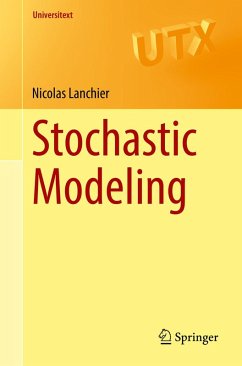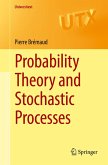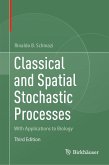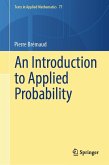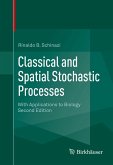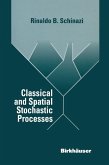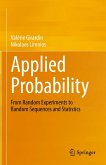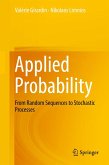The first part of the text begins with a brief review of measure theory and revisits the main concepts of probability theory, from random variables to the standard limit theorems. The second part covers traditional material on stochastic processes, including martingales, discrete-time Markov chains, Poisson processes, and continuous-time Markov chains. The theory developed is illustrated by a variety of examples surrounding applications such as the gambler's ruin chain, branching processes, symmetric random walks, and queueing systems. The third, more research-oriented part of the text, discusses special stochastic processes of interest in physics, biology, and sociology. Additional emphasis is placed on minimal models that have been used historically to develop new mathematical techniques in the field of stochastic processes: the logistic growth process, the Wright-Fisher model, Kingman's coalescent, percolation models, the contact process, and the voter model. Further treatment of the material explains how these special processes are connected to each other from a modeling perspective as well as their simulation capabilities in C and Matlab(TM).
Dieser Download kann aus rechtlichen Gründen nur mit Rechnungsadresse in A, B, BG, CY, CZ, D, DK, EW, E, FIN, F, GR, HR, H, IRL, I, LT, L, LR, M, NL, PL, P, R, S, SLO, SK ausgeliefert werden.
"There is a wide spectrum of topics discussed in this book. ... It is also interesting to find several classical examples with all details. ... The text is so carefully written and checked, that I was unable to find a single typo. The book can be strongly recommended to those students and teachers who want to be in line with modern probability theory and its diverse applications." (Jordan M. Stoyanov, zbMATH 1360.60002, 2017)

